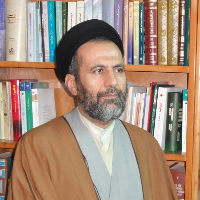Exegetical Analysis of Figurative Meaning of “Yad” in the Verse “Allah’s Hand Is Above Their Hands” and Criticism of Zamakhsharī’s Opinion
Knowing the figurative meaning of similar words in the Quran is necessary to understand the meaning of the word and, accordingly, to understand the meaning of the verse. This research studies the commentators' viewpoints on the figurative meaning of “Yad” in verse “Yad-o-Allah-e-Fawq-a Aydīhim” with a descriptive-analytical method. Considering that it is proven in theology that God is exempt from having physical organs, then the true meaning of “yad”, i.e. hand, in this verse cannot be related to God. The main question of this research is that “What is the figurative meaning of the word “yad” in this verse and what did God intend by “yad” in this verse?” The commentators have presented diverse meanings for the figurative meaning of “yad” here, which can be counted up to 18. Zamakhsharī, the great commentator, for the first time assigned the meaning of the hand of the Messenger of God (pbuh) to the word “yad”, which was accepted by a group of commentators after him. This research criticizes Zamakhsharī's view and does not consider his claim comprehensive, rather it interprets the figurative sense of the word “yad” to “the hand of God's allegiance”.
-
Exegetic Study of Allameh Tabatabai and Seyyed Qutb's View in Explaining Social Justice in Al-Mizan and Fi Zilali al-Qur'an
Nasrollah Shafiei*, Ezzatollah Moulayinia, Seyedreza Moaddab
Journal of The Holy Quran And Islamic Texts, -
Analysis of the Theory of the Semantic Principle of Words in Ibn Faris' Mu'jam al-Maqāyīs al-Lughah and Raghib's Mufradāt al-Qur’ān
Seyed Reza Moaddab*, Ali Badri
pazhouhesh name-ye quran va hadith,


